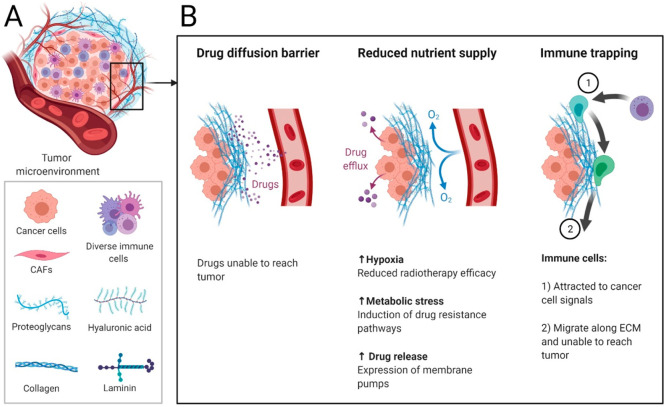Figure 2.
(A) Tumor microenvironment is rich in various cells (e.g., cancer cells, cancer-associated fibroblasts, and immune cells); deposits of proteoglycans, hyaluronic acid, collagen, and laminin as an extracellular matrix (ECM); and exhibits augmented angiogenesis. (B) Three salient mechanisms of drug resistance exhibited by the tumor microenvironment: (i) presenting a diffusion barrier against the intratumoral spread of anticancer agents; (ii) curtailing the supply of oxygen and nutrients to the cancer cells that switches on the cellular resistance pathways; and (iii) alleviating the impact of radiotherapy and the immune trapping mechanism where the immune cells, albeit responding to the signaling mechanisms of cancer cells, migrate along the ECM boundary and, thus, fail to permeate the tumor.

